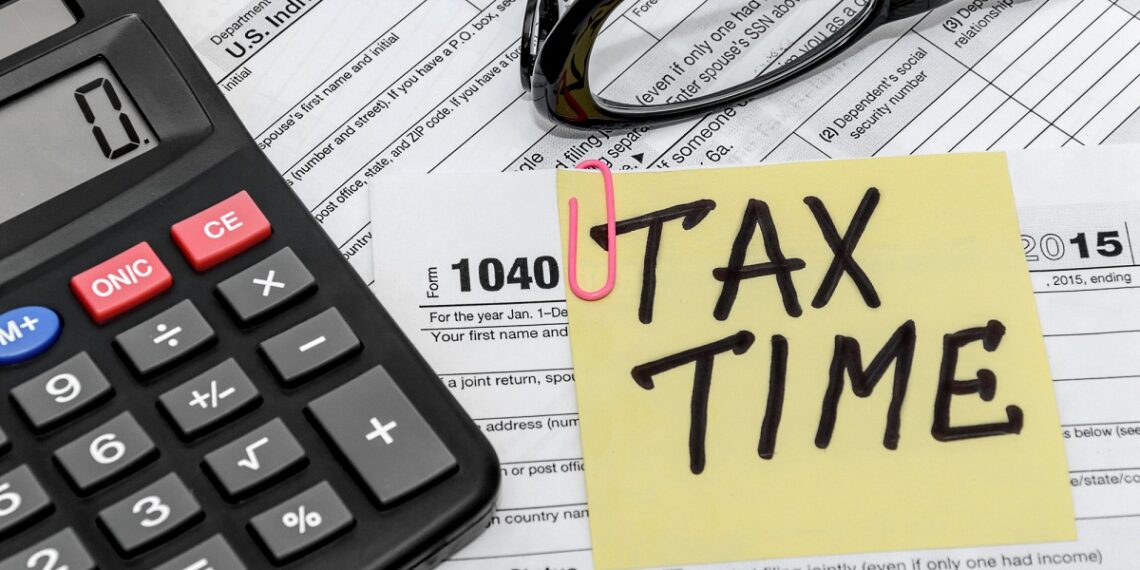With one-third of Americans filing taxes at the last minute, it’s very easy to end up being late. More than that, some people end up past the deadline entirely or even never getting around to paying their taxes.
It’s led to a big question: what happens if you don’t pay your taxes?
Obviously, there are consequences for doing so, but what exactly are they, and what do they depend on?
Read on to find out all about what happens if you don’t pay your taxes on time.
Table of Contents
Interest and Penalties Over Time
If you file late, the IRS will charge you 5% for every month your taxes are late. This includes part-months. For those who owe a large amount, this can add a seriously steep sum.
It can’t exceed 25% however.
The penalty for paying late, however, tends to be less than the penalty for filing late, as these are different things. Even if you can’t pay, it’s worth filing and exploring your options.
If you pay at least 90% by the due date after requesting an extension, you might be able to avoid fees and fines altogether.
You can request a filing extension with the IRS, but will still have to make an estimated payment by the deadline.
Seizing Wages
If time goes on and you aren’t paying taxes that you owe, the IRS has an option to seize your wages. This will give you no choice but to pay, as they’ll take them before they even reach your bank account.
If this happens, you need to call them and make other arrangements to pay, or negotiate the amount they’re taking.
Larger Consequences
If you owe a lot of money, the government can put a lien on your house (or any other property). This means that if you sell it, the government will take what you owe before you can make any profit from it.
After you have paid your debt, the lien will be released within thirty days.
There are many ways to deal with a lien, but the simple fact is that it will definitely make life harder if you want to do anything with your property. Refinancing it will become impossible, and won’t benefit you at all to try.
Selling it will also be hugely affected.
Criminal Charges
If you willfully try to avoid paying your taxes, you can be charged with a fine or even time in prison. This usually happens if you avoid communication from the IRS for a long period of time, or if you misrepresent yourself on your tax form.
This most often happens when people are self-employed and claiming expenses they shouldn’t be, or keep their money in a foreign account and think they don’t have to tell the IRS.
To avoid any misunderstanding, it’s best to pay a tax professional if your situation is complicated. However, if the IRS are pressing criminal charges, it’s likely because something very deliberate was done.
What To Do If You Haven’t Paid
If you don’t pay taxes on time, don’t panic. There are a few things you can do.
Call the IRS
Your first point of contact should be the IRS. The IRS is generally open to working with you, as they don’t want to spend time and money chasing you if something can be worked out.
Be open about how much you can pay on a payment plan. If you can only pay a little a month, don’t get ambitious and tell them you can pay more. This will only result in more problems down the line.
Hire a Professional
Even if you’ve already fallen beyond on your taxes, one of the most obvious tax tips and tricks is to just hire a professional. They know the law, will be able to liaise with the IRS, and you won’t have to research what it is and isn’t allowed.
There are also tax resolution programs that can help.
Bankruptcy
If you declare that you are bankrupt, it only eliminates certain types of taxes — not all of them. You should only take this as an absolute last resort, but it can help in dire circumstances.
This is no easy option, so you might want to seek legal advice before you go ahead with this.
Be Honest
If you’re already in a hole, don’t dig any deeper. Make sure you’re entirely honest about your situation and the taxes you owe.
No one is sent to prison for struggling to pay taxes they can’t afford, but people do go to prison — or face hefty fines — for actively trying to avoid paying. When it comes to the IRS and what they’ll do about missing payments, it comes down to intention a lot.
Make sure you’re always being as transparent as possible.
Be Up to Date in Future
The best thing you can do is make sure you’re up to date in the future. Don’t give the IRS more reasons to chase you!
What Happens If You Don’t Pay Your Taxes? All This
So what happens if you don’t pay your taxes? A lot can happen, and it really depends on your situation.
How much do you owe? Were you deliberately trying to avoid paying, or did you just make a mistake or fall behind?
The consequences aren’t too bad as long as you seek help, are upfront with the IRS, and do your best to cooperate with them.
For more business advice and other posts, check out the rest of our site.

